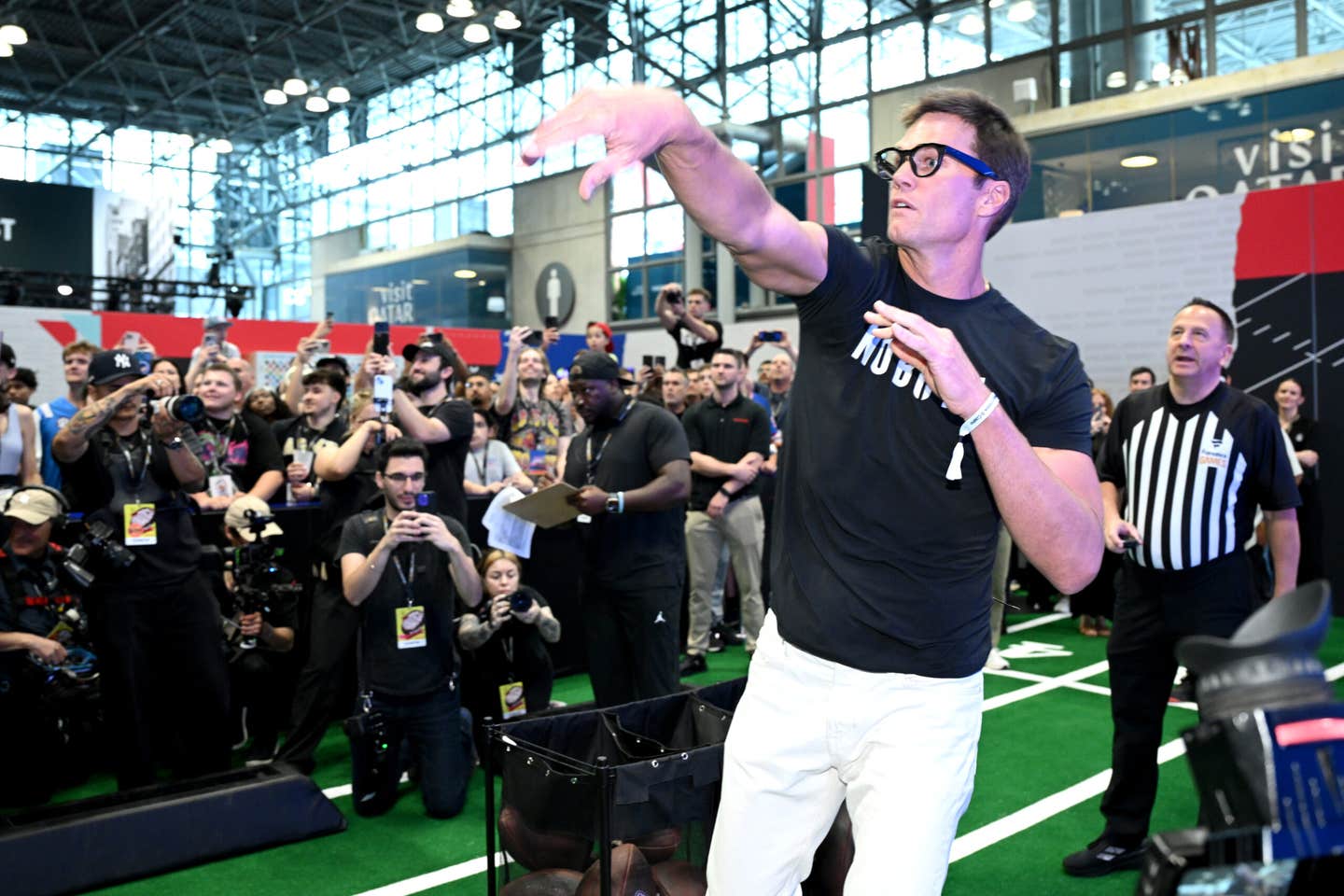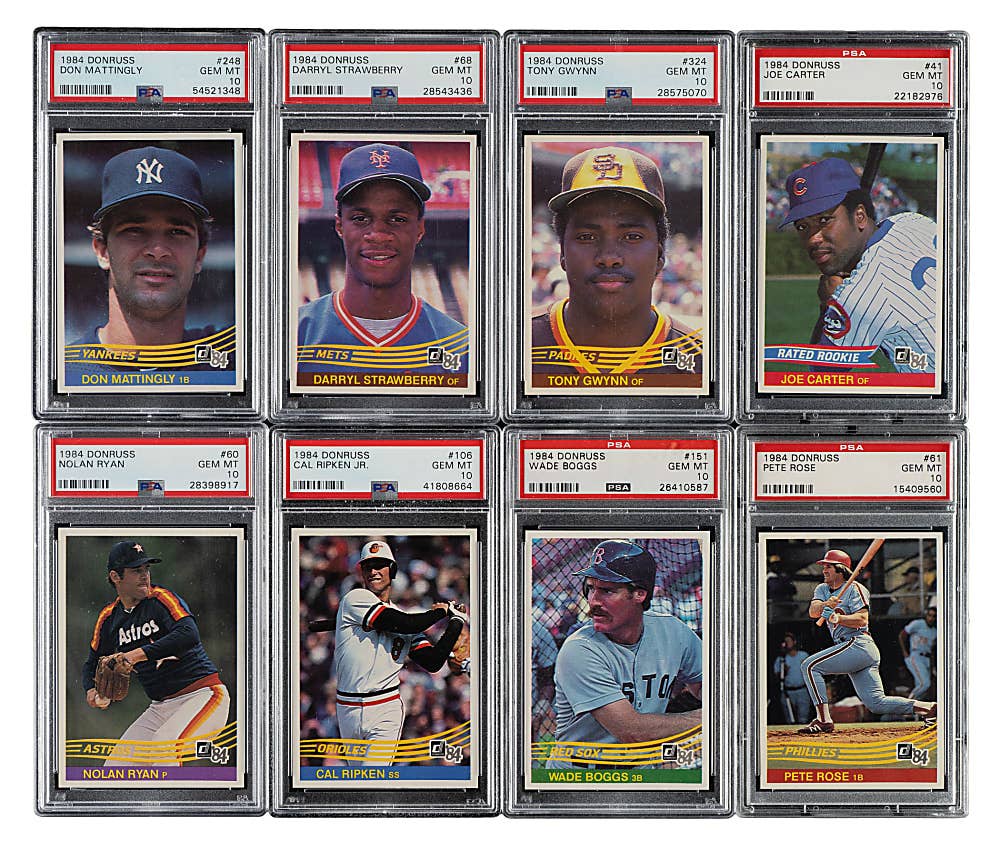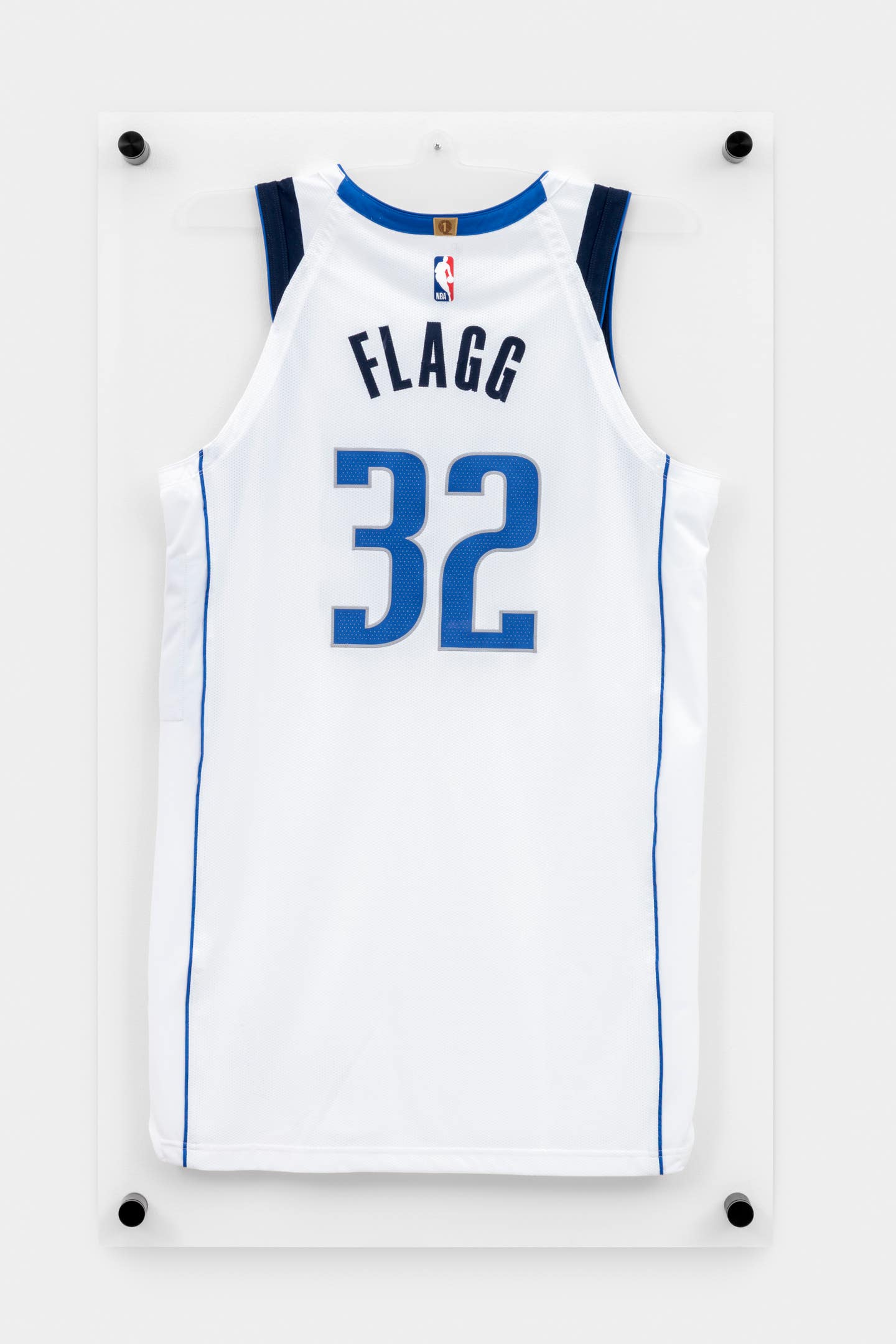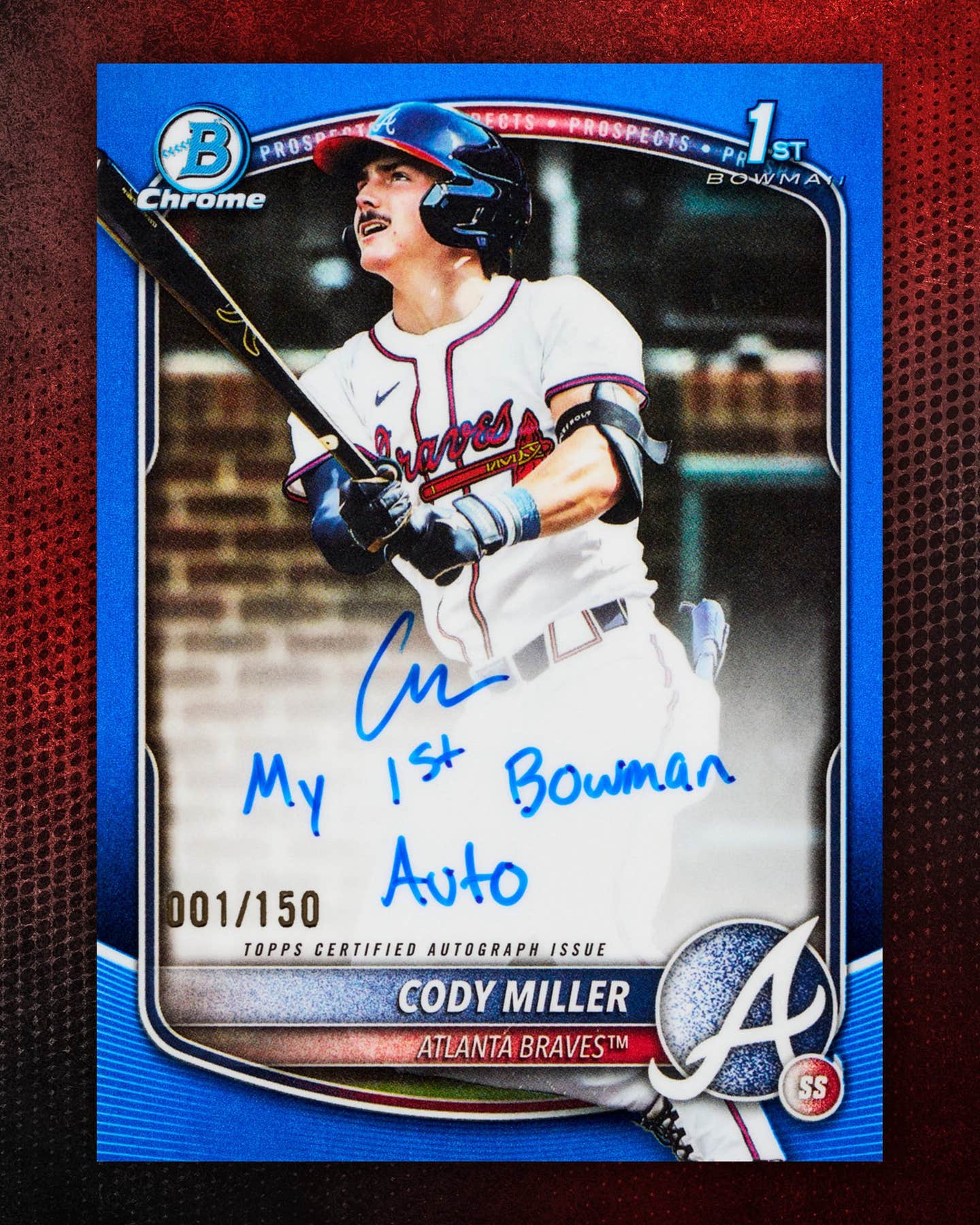Collecting 101
Orlando: Third-party services help collectors
If it takes one to know one, then that explains why PSA and PSA/DNA continue to offer new services for collectors since Joe Orlando became president of the companies in 2002. The leaders in sports card grading through PSA, Collectors Universe is also the market-share leader in autograph authentication (PSA/DNA) and in many other areas in which it is virtually alone, like ticket grading.
Orlando is a longtime collector who many hobbyists know personally. He was also a graded-card collector and actually once wrote an opinion piece for SCD defending the then-new slabbing process a decade ago. SCD spoke with him about his personal and professional opinions on the sports collecting hobby.
SCD: Did you collect as a youngster? Did you have the shoebox full of cards?
Joe Orlando: Yes, I've been collecting since I was 4 or 5 years old. I can vividly remember my first experience collecting. My parents took me to the local mall, and next to Scotty's Pizza in New Jersey, there was a collectibles store with coins, cards and stamps.
I have no explanation why, but my first two cards were a 1960 Topps Sandy Koufax that looked like a dog had picked its teeth with it, and a 1975 Topps Jay Johnstone. I have a hard time remembering why those were my first two cards, but those were my first two cards. From there on, I became more active as a collector over the years. My parents really encouraged me to get involved with the hobby, and I'm glad they did because I've enjoyed it ever since.
SCD: Do you remember what set was the first that you completed?
JO: The first set that I set out to complete was 1975 Topps Baseball). Part of it was the timing; I was growing up and coming into an age when I could start collecting cards. In addition to that, it was just a really fun set. It had a lot of great rookie cards, it was colorful, it was different from all of the sets surrounding it during the era. That is the set that sticks in my mind as the first set that I really focused on collecting.
SCD: Did you ever go backward and get a vintage set?
JO: As I grew up as a collector, I started to go back. I think the oldest set I ever completed as a hobbyist was 1960 Topps Baseball, and then I proceeded to trade that set for a case of 1986 Sportsflics (laughs).
SCD: Really?
JO: Not entirely (laughs). But somewhere in the late 1980s, when the hobby was in a boom stage, I took some of the vintage material that I had assembled and started to trade it for some of the hot, modern stuff. I quickly regretted that.
SCD: Do you still collect, and if so, what?
JO: I do not collect as much as I'd like to. I don't collect graded cards anymore. When I first came to work at PSA seven years ago, no one told me I couldn't collect PSA cards anymore, and it had been a part of my life all those years. But I decided not to because I felt like it would be perceived as some sort of conflict of interest so I learned more about different types of memorabilia. I have a small collection of special things. I have some autographs, some game-used bats and some display pieces. There's not one universal theme to my collection. It is interesting and funny, as time goes on, how collectibles slowly but surely turn into things like couches, coffee tables and appliances after you get married. (laughs) It's all part of growing up and taking care of your priorities. So I stay active in collecting, but I don't collect as much as I'd like to. I hope to be more active someday.
SCD: What are the couple key pieces in your collection, from a nostalgia or value standpoint?
JO: I have a few Babe Ruth pieces. I've always been a huge fan of the power hitters, and Babe Ruth to me has been a symbol of so many things - the hobby, the symbol of baseball, the American dream. I have a handful of autographed pieces from Babe Ruth.
One of my other favorite pieces is slightly more meaningful, from a personal standpoint. I played baseball all four years in college, and had a very brief stint after college, playing for an independent minor league team. The team was managed by Ellis Valentine, a former big-leaguer. It was nothing to brag about but, when I became serious about baseball at the collegiate level, it changed my life. In fact, it had more of an impact on me that all of my academic education combined because, more than any other experience in my life, it helped shape who I am as a person.
I was a catcher, so some of the catchers have a special place for me, and to me, Johnny Bench is the greatest catcher of all time. All the way around, as a leader, offensively, defensively, he was probably the best ever. I don't think I'd get a lot of argument about that. Anyway, I have a game-used Johnny Bench catcher's mitt from 1977 that's very special to me. The catcher's mitt and gloves in general are very personal items, much like bats are. This mitt is special to me because they are the symbol of the very position that changed my life. A catcher's mitt is involved in virtually every pitch of every game. That glove is one of the more special things that I have in my collection.
SCD: Give me a recap of your professional career.
JO: I graduated from law school in 1999, but I've never practiced law or intended to. I wanted to use the degree for business but I never really planned on working in the collectibles industry, despite being a collector. While I was in college, I discovered PSA and I really liked the concept. In fact, I wrote an article that SCD published, defending the concept of third-party grading during a time when it was very controversial, in the mid 1990s. It hadn't been accepted yet by most of the hobby and I wrote that article and it ran, and I actually used that article during the interview process when I came here, to show the people at PSA that I was on-board with the concept.
Years later, when I was in law school, I was approached by PSA to work for the company, but it was during my second year and I really wanted to finish school, so I declined. Then shortly after graduating in the spring of 1999, I was offered another job by PSA and decided to take it, and I'm sure glad I did.
It was hard for my family, especially my father, to understand why I chose this route after going through the brutal curriculum in law school because he wasn't familiar with the business even though he encouraged me to be a collector. Now, seven years later, they understand what I do much better.
SCD: To some degree, you targeted the company before it knew about you?
JO: It's very strange to sit here now in my current position as president, but it's very rewarding on a personal level. It's not a stretch to say that I was probably one of PSA's very first customers. I remember going to a show and there was a table, literally one table with one gentleman who had a handful of graded cards in PSA slabs and a handful of brochures. He explained to me what the company was about. For whatever reason, it really hit home with me. I had a lot of questions and I spoke with him for a long time.
As I kept collecting and stayed in touch with the company, it crossed my mind that there might be an opportunity somewhere down the line at PSA. I was continuing my education and not planning on it, but when the opportunity presented itself, I'm very grateful that I took it because I really enjoy being here.
SCD: What is your history at the company and how did you grow to become president?
JO: I started off as a market analyst; I guess my first official title was sports content manager. That job entailed working on the website content, but my main duty was to take what was at the time a small pamphlet called the SMR (PSA's monthly price guide magazine and house organ, the Sports Market Report) and turn it into a full-fledged monthly price guide and magazine. Also, I would just assist in any way I could to help enhance the content of our websites, brochures or communications with the public.
Somewhere in the fall of 2001, I was promoted to vice president and national sales manager, basically working on the marketing aspects of the company, being a dealer liasion, talking to submitters, trying to generate business for the company. In the fall of 2002, I became the president of PSA, and shortly thereafter became the president of PSA/DNA as well.
SCD: How does your background as a collector impact your decision making on a daily basis?
JO: It's very important for a decision-maker to have direct experience in the field, and for me, it's helped me a great deal. Any time I consider launching a new program or service, while I obviously have to consider it from a business perspective, part of it is also considering it from a collector's perspective. In the end, understanding the collector/dealer will result in more successful programs.
What would the collector want to see? Is this a program or service that collectors or dealers are going to embrace? Having that collector experience really helps my decision-making process, because I've been there. I've literally been a submitter to PSA, and I have asked the same questions and had the same concerns as our customers when I was a submitter to the company. So, I'm in the unique position of having experienced the other side of this, and it helps me deal with the public and with my decision making because I can see the issues from both sides.
It really matters to me that collectors know I'm not a corporate "suit," I'm definitely not a suit working for a corporate entity. There are a lot of people in this industry today who never were collectors and don't have that background to fall upon. While there's nothing wrong with that, I would imagine that this fact could hinder the ability of some to make the best decisions for a hobby company. That is part of what makes Collectors Universe so unique, because our foundation is built upon people who understand collectibles and have the experience to back it up. I want people to know that if I wasn't involved with PSA, I'd still be involved with the hobby, and that I really believe in the concept of third-party authentication and grading. I believe in what PSA represents. I think if people look at my track record as a collector, they know that I really believe in the product that we present and the concept of this company.
SCD: Are there specific decisions or new programs that really came out of your history in the hobby, or is it more entrenched in virtually all of your decisions?
JO: I think it really is entrenched in virtually anything we do. Every move we make affects the hobby, dealers and collectors. Every time we make a decision, I have to really rely upon the experience that I have, and I think, "What are the questions I would have as a hobbyist?" I really do think it affects virtually everything I do.
Coming next week: Part II.








